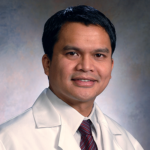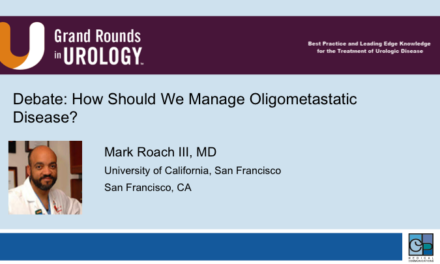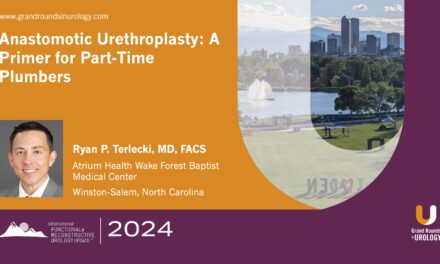Gladell P. Paner, MD, presented “Novel and Emerging Pathological Factors in Localized and Recurrent Prostate Cancer” during the 8th Global Summit on Precision Diagnosis and Treatment of Prostate Cancer on October 8, 2024.
How to cite: Paner, Gladell P. “Novel and Emerging Pathological Factors in Localized and Recurrent Prostate Cancer.” October 8, 2024. Accessed Nov 2025. https://grandroundsinurology.com/novel-and-emerging-pathological-factors-in-localized-and-recurrent-prostate-cancer/
Novel and Emerging Pathological Factors in Localized and Recurrent Prostate Cancer – Summary
Gladell P. Paner, MD, discusses novel and emerging pathological factors in localized prostate cancer, highlighting their relevance to recurrent cases. In his 11-minute presentation, he explains that while most prostate cancers are usually adenocarcinomas, aggressive subtypes such as intraductal carcinoma and adenocarcinoma with neuroendocrine differentiation present higher risks for metastasis and poor outcomes. He delves into changes in contemporary Gleason grading and the introduction of grade groups, facilitating more standardized reporting and prediction of patient outcomes.
Dr. Paner endorses standardized reporting protocols, including those from the College of American Pathologists and international guidelines, integrating factors to enhance diagnostic precision. He encourages professionals to adopt these protocols to improve clinical outcomes in prostate cancer management.
The Global Summit on Precision Diagnosis and Treatment of Prostate Cancer is a unique multi-disciplinary forum organized to inform the key health care stakeholders about the emerging advances in clinical case and research and create a consensus-based vision for the future of precision care and educational and research strategy for its realization. The mission of the Summit is to fill the currently existing gap between the key experts of in vivo imaging, the world authorities in the in vitro fluid- and tissue-based molecular diagnostics, including genomics, and thought leaders in the development of novel observation strategies (e.g., active surveillance, or AS) and therapeutic interventions.





